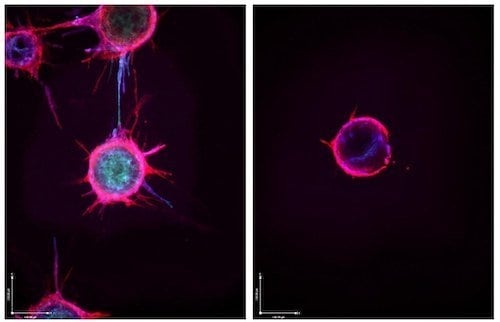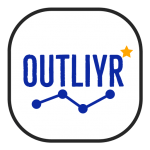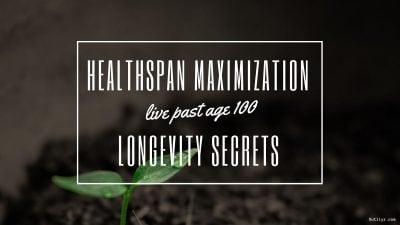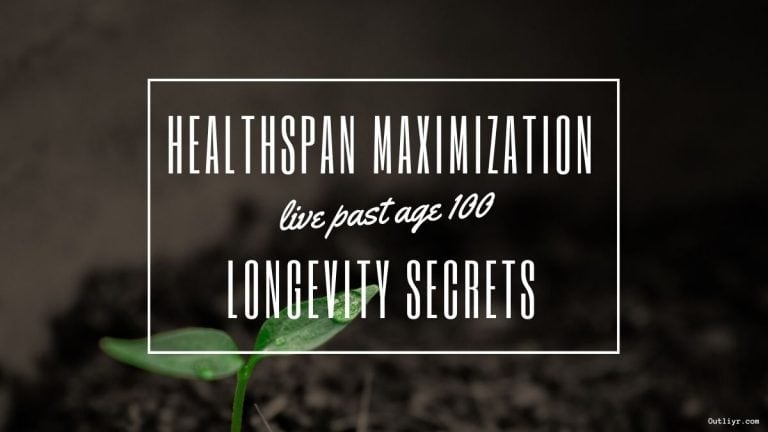Natural NAD boosters, sirtuins, mTOR, AMPK, spermidine, rapamycin, metformin all make headlines. But long-term health doesn’t come from anti-aging isolates, molecules, or pathways.
More importantly, is your lifestyle. Modern centenarians don’t use crazy new technologies. Nor do they have superior genes.
You too can extend not only your lifespan but healthspan (quality of those elder years).
Many of the best anti-aging strategies are completely free and available to the masses. Here are ten top healthspan promoting practices that will help you join the ranks of centenarians and live past age 100.
Healthspan Tip #1: Don’t Sit Still (for Too Long)

Not a gym rat? Hate running?
To live a long time you don’t have to. You won’t get in shape sitting on your butt all day, but there are a couple of keys.
Your optimal weekly movement plan has three parts:
Frequent low-level movement throughout the day. Light activities like walking make up the base of your fitness pyramid.
Several quick high-intensity micro-workouts. Hour-long HIIT classes put intense stress on your body. You can get the same results (or more) from a few minutes of intense training sprinkled throughout the day.
Some sprints and resistance training. Strength is strongly correlated with longevity. Short strength workouts work great. You respond by becoming a more resilient and hardy human. It’s one reason I am so fond of sprints (here is a guide on sprinting, its benefits, and how it works).
Health experts revere fitness as a primary overall anti-aging strategy for good reason. It affects every biological pathway associated with aging (in good ways). But exercise alone won’t cut it.
Healthspan Tip #2: Prioritize Social Time
You can enjoy a night out with friends guilt-free.
Humans are social creatures. As we see from our current global situation, introverts and extroverts both need social interaction.
Sure, you’ll make a few perhaps “bad” decisions. One too many drinks, or a questionable snack.
I value social connection so highly, that I willingly overlook that extra drink that I enjoy in their company. I eat things outside my normal eating pattern. Best of all? I still feel great the next day.
Healthspan Tip #3: Eat Real Foods

Your meal is more than calories, vitamins and minerals.
Nutrients aside, food contains all kinds of biological signals that do pretty extreme things. Tiny microRNA in every bite of food, for example, can “turn on and off” the expression of certain genes. Food changes your gut microbiome in important ways.
Chlorophyl, the molecule that gives plants their green color, can turbocharge your energy-producing mitochondria.
Supplements don’t work as complete replacements. They cannot make up for the broad signals conferred by high-quality, clean real foods. I rely on farmer’s markets and local farms for the best produce possible.
What you eat (and don’t) provides the building blocks and blueprint your body uses to rebuild itself.
Healthspan Tip #4: Sleep
Sleep’s often the first thing to go when new deadlines pop up.
Losing sleep comes at a cost:
- Lower quality of life
- Higher chance of death
- Inability to handle carbohydrates
- Worse brain function
- Less body and brain repair
- Impaired athletic performance
Think you thrive on little sleep? Dr. Matthew Walker in his book Why We Sleep suggests otherwise:
"It is far, far more likely that you will be struck by lightning (the lifetime odds being 1 in 12,000) than being truly capable of surviving on insufficient sleep thanks to a rare gene.” Share on XTo starve off degenerative disease and live through two centuries, you shouldn’t rely on a rare gene (DEC2 in this case).
Healthspan Tip #5: Intentional Deprivation

Calorie restriction (CR) has been the life extension gold standard for decades.
Rats on a calorie restricted diet live 28 percent longer.
The only problem is that long-term calorie restriction has some nasty side effects. Weight gain, feeling tired, low libido, and in a bad mood.
A perfect opportunity to hack calorie restriction.
Save your willpower. You can eat like royalty, avoid the negative side effect of CR, and still live long.
A 24 hour fast is a powerful means of reducing calories and stimulating a similar cascade of physiological changes. There’s a reason I add a 24 hour fast to my weekly routine.
Healthspan Tip #6: Optimize Your Environment
How is your living environment?
Take a page out of the centanarian playbook. People living to 100+ know a thing or two about high-quality environments.
From watching the morning sunrise (clean light), to pristine drinking water, to the organization of your personal spaces, each environmental input factors into your lifespan. Some of the ones to pay attention to:
- Light exposure
- Water
- Air
- Chemical exposure
- Contact with nature
Separately, each biological input seems minor. Together they play a large role.
The more our modern lifestyle aligns with our species evolution, the better our health. Decades down the line science will piece together the mechanisms behind how it works.
Healthspan Tip #7: Become a Curious Life-Long Learner

Curiosity keeps the mind sharp.
All else equal, challenged minds are more resilient than bored minds.
Reading is fitness but for the mind. Reading:
- Improves your focus. It’s hard to read well and multitask.
- Builds your vocabulary.
- Helps you spot connections between different fields.
- Makes your brain fill in implied information.
- Strengthens your memory.
- Challenges your limiting beliefs.
- Broadens your perspectives.
Reading has become one of my favorite learning methods. I do it daily. Pick out a book from the biohacker’s health and wellness booklist today.
Books aside, you can learn in countless other ways. Articles, podcasts, puzzles, classes, videos—new mediums crop up all the time. The best biohacking experts have every form of content and perspective you could want.
What hasn’t changed is the healthspan-promoting effect of curiosity.
Healthspan Tip #8: Build Stress Resilience
Your biology is built to handle short bursts of intense stress. In fact, you adapt to and thrive on it.
The next time it occurs you’re wired to overcome it more efficiently. This is all well and good until that stress doesn’t subside. Acute stress becomes chronic low-level stress.
Chronic low-level stress leads to a whole host of modern disease.
How do we overcome this silent killer?
Stress-resiliency techniques to stop chronic stress in its tracks, and improve our ability to cope with acute stress. Some common techniques include:
- A mix of intense and easy exercise.
- Deliberate breathwork practice (like the Wim Hof Method)
- Learning the proper breathing technique.
- Meditation and/or mindfulness.
- Brief exposure to extreme hot and cold temperatures (through sauna use and cold showers).
Whatever you decide, remember that your body adapts effectively—and even thrives—on a change in routine.
Healthspan Tip #9: Switch Up Your Routine

What works today might not tomorrow.
If you’ve hit weight loss, muscle gain, or learning plateaus, you’ve undoubtedly noticed that no single approach works forever.
You adapt to new circumstances quickly. The brain is the most power-efficient machine on the planet.
Take on something out of your ordinary, and the brain scrambles to form new neural connections. These connections make the new habit easier in the future.
Adaptation changes your physiology. Your approach must change with it. Otherwise you’re fighting against yourself.
Ancestral medical practices knew this concept well. Ayurveda recommends lifestyle changes in accordance with the season and stage of life. Plants and other animals change their rhythms with nature, so why shouldn’t humans?
Healthspan Tip #10: Powerful Mindset
What do you tell yourself day in and day out?
- That you’re weak, broken, and full of problems?
– Or –
- That you’re powerful, capable of regeneration, and have an important life to live?
An arsenal of all the most powerful anti-aging supplements practices won’t override pessimistic self-talk.
Passion, purpose, mission, motivation, mindset, and other statements are buzzwords. With a (large) kernel of truth. You can’t be healthy over the long-term without them.
Your beliefs and mindset set your path forward. Get them in check and you’re well on your way.
Healthspan Advice: Live Like Ancient Humans (With a Touch of Modernity)
Healthspan is lifespan 2.0. With special emphasis on the quality of your final years.
I shudder at the thought of spending decades in a nursing home fully reliant on others.
I plan on staying strong as an ox, and sharp as a tack into my final years. I’m optimizing for healthspan.
To do so, there are a few key principles:
- Constantly challenging yourself.
- Providing quality inputs to your body and mind.
- Living in harmony with human evolution.
Want to see multiple centuries? 100+ years of technological progress? Hover cars? Or more of your kids (and their kids) lives?
Nursing homes may have beautiful, close-knit communities. But I want to experience the wonders of the future.
What’s your motivation to live longer?



